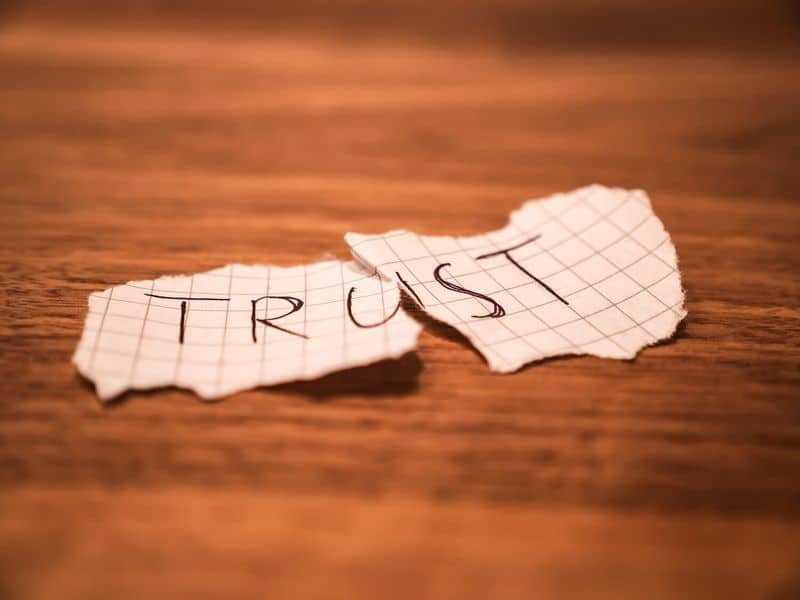Marriage is a sacred bond that promises love, companionship, and support. However, not all relationships fulfill these promises, and some may turn toxic over time. Recognizing a toxic marriage is crucial for personal well-being and future happiness.
This guide aims to help you identify the signs of a harmful relationship and offers thoughtful insights into whether it might be time to consider walking away. By exploring these 11 indicators, you can better understand your situation and make informed decisions that align with your emotional and mental health. Remember, seeking professional help is always a wise step in dealing with such delicate matters.
1. Constant Criticism

In a toxic marriage, constant criticism from one partner can erode self-esteem. It often manifests as relentless fault-finding, belittling, or sarcastic remarks. These attacks may appear trivial but are persistent, creating an environment of negativity. When criticism becomes a norm rather than an exception, it can transform love into resentment and hostility. Seeking open communication or therapy can be a step toward healing. However, if criticism is deeply ingrained, it might indicate a deeper incompatibility that requires serious contemplation. Recognizing these patterns is the first step toward assessing your relationship’s health.
2. Lack of Trust

Trust is the cornerstone of any healthy relationship, and its absence can be a significant red flag. In a toxic marriage, suspicion and doubt overshadow love and affection. Whether due to past betrayals or unfounded paranoia, living in constant mistrust is emotionally draining. The lack of trust may lead to controlling behaviors, constant questioning, and invasions of privacy. Such an environment stifles personal growth and happiness. If trust cannot be rebuilt through honest conversations or counseling, it might be a sign that the relationship is beyond repair.
3. Emotional Manipulation

Emotional manipulation in a toxic marriage can leave one feeling trapped. It involves subtle control tactics, where one partner may guilt-trip or gaslight the other. These behaviors can cause confusion, self-doubt, and dependency. The manipulator often twists reality to maintain control, leading to an unhealthy dynamic. Recognizing manipulation is challenging but crucial in understanding the relationship’s toxicity. Seeking professional help or setting boundaries may offer relief. However, persistent manipulation may signal a need to reassess the relationship’s future, focusing on personal well-being.
4. Isolation from Friends and Family

Being cut off from loved ones is a classic sign of a toxic marriage. Isolation is often enforced subtly, with a partner discouraging time spent with friends and family. This isolation can lead to loneliness and a sense of being trapped. It’s essential to maintain a support system outside the marriage, as isolation can worsen feelings of dependency and hopelessness. If your partner’s actions consistently pull you away from your support network, it may be time to reevaluate the relationship. Reconnecting with loved ones can provide perspective and strength.
5. Financial Control

Financial control is a manipulative tactic where one partner exerts dominance over shared resources. This can include restricting access to money, scrutinizing expenses, or making unilateral financial decisions. Such control undermines independence and creates an imbalance of power. It may lead to feelings of helplessness and dependency. Open conversations about finances are vital, but persistent control may necessitate a reevaluation of the relationship. Consider seeking financial advice or counseling to regain autonomy and understand the implications of such control on your marriage.
6. Frequent Arguments

While disagreements are normal, constant fighting is indicative of underlying issues. In a toxic marriage, arguments often escalate without resolution, leading to bitterness and resentment. These fights may stem from unmet needs, personality clashes, or unresolved past conflicts. Frequent arguments can create a toxic environment affecting mental and emotional well-being. Learning conflict resolution skills or seeking therapy might help. However, if hostility persists, it might be time to consider whether the relationship aligns with your needs and happiness.
7. Neglect and Indifference

Neglect is a silent killer in relationships, where indifference replaces affection. A toxic marriage may involve a partner who is emotionally unavailable or dismissive. This lack of attention can make the other feel unworthy or unloved. Over time, neglect fosters loneliness and disconnect. Recognizing the impact of neglect is essential in evaluating the relationship’s vitality. Open dialogue about needs and expectations might reignite the connection. However, persistent indifference may suggest an insurmountable barrier, urging a reconsideration of the relationship.
8. Jealousy and Possessiveness

Jealousy is an emotion that, when unchecked, can poison a marriage. In a toxic relationship, it often manifests as possessiveness, leading to monitoring or restricting activities. Such behavior stems from insecurity and can erode trust and freedom. Jealousy may cause arguments and strain the relationship, stifling individual growth. Addressing these feelings through communication can help, but persistent possessiveness may indicate deeper issues of control. Understanding the roots of jealousy is crucial in deciding the relationship’s future, focusing on mutual respect.
9. Verbal Abuse

Verbal abuse is a serious and damaging aspect of a toxic marriage. It includes yelling, insults, threats, or derogatory comments that harm self-esteem. This abuse can be subtle or overt, often leaving lasting emotional scars. Recognizing verbal abuse is vital in understanding the relationship’s toxicity. Seeking help from professionals or support groups can provide guidance and strength. If verbal abuse is persistent and unchanging, it might be imperative to consider leaving the relationship for personal well-being and safety.
10. Lack of Intimacy

Intimacy is the glue that binds relationships, and its absence can signal problems. A toxic marriage may experience a decline in physical or emotional connection. This lack can stem from unresolved conflicts, stress, or neglect. Without intimacy, partners may feel disconnected or undervalued. Reviving intimacy requires effort and understanding from both sides. However, if the lack persists, it might reflect deeper issues that challenge the relationship’s viability. Assessing the importance of intimacy can guide decisions about the future of the marriage.
11. Physical Abuse

Physical abuse in a marriage is a clear danger sign that requires immediate attention. It includes any form of violence or harm and should never be tolerated. Physical abuse not only endangers physical health but also deeply impacts emotional and mental well-being. Recognizing abuse is crucial, and seeking immediate help from authorities or support services is vital. Leaving a physically abusive relationship is often necessary for safety and healing. Prioritizing personal safety and reaching out for support is essential in such situations.
12. Controlling Behavior

Controlling behavior in a marriage can manifest in various ways, such as dictating where you can go, who you can spend time with, or how you should behave. It’s a form of domination that restricts freedom and autonomy. Over time, it can erode your self-confidence and sense of independence. A healthy relationship is built on mutual respect and trust, where both partners have the space to grow and thrive individually. If one partner consistently attempts to control the other, it’s important to recognize this behavior and evaluate its impact on the relationship. Seeking couples counseling or individual therapy can help you navigate these dynamics and assess whether the relationship can be repaired or if it’s time to move on.

Well, hello there!
My name is Jennifer. Besides being an orthodontist, I am a mother to 3 playful boys. In this motherhood journey, I can say I will never know everything. That’s why I always strive to read a lot, and that’s why I started writing about all the smithereens I came across so that you can have everything in one place! Enjoy and stay positive; you’ve got this!

